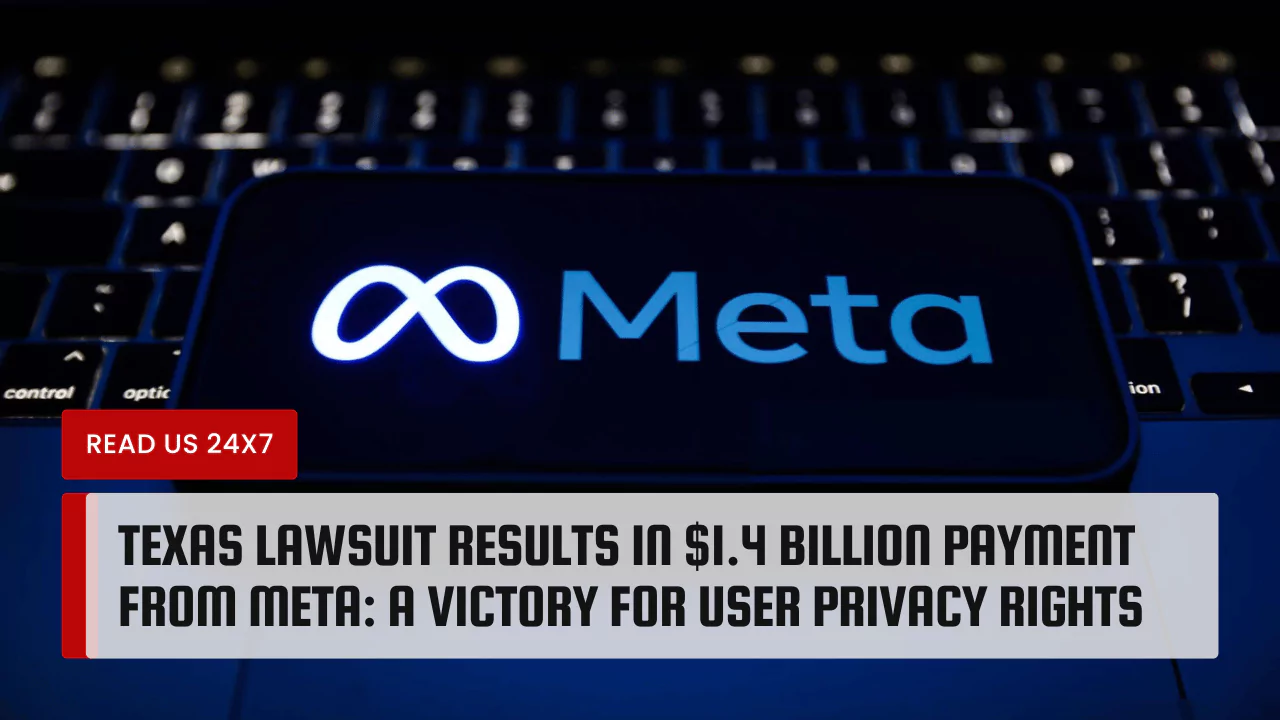The recent lawsuit filed by Texas against Meta has concluded with a historic $1.4 billion settlement. This agreement highlights the importance of protecting user privacy rights. The settlement brings attention to how companies should handle personal data, especially biometric data.
Meta Agrees to Pay $1.4 Billion Settlement in Texas Biometric Data Lawsuit
The lawsuit stemmed from accusations that Meta violated user privacy by unlawfully collecting biometric data. The Texas Attorney General’s office led this case against the parent company of Facebook. The lawsuit focused specifically on Meta’s facial recognition technology. This technology was used to analyze faces from photos uploaded by users on Facebook.
The settlement, recently finalized, is the largest in history obtained by a single state. Attorney General Ken Paxton stated that this payment demonstrates the commitment to upholding privacy rights in Texas. This landmark outcome sends a strong message about accountability in the tech industry.
Background on Meta and the Lawsuit
Meta, formerly known as Facebook, used facial recognition technology extensively. This technology allows the platform to identify and tag individuals in photos and videos. However, many users were unaware that their biometric data was being captured in this way.
The lawsuit accused Meta of collecting personal biometric data without obtaining user consent. The use of a feature called “Tag Suggestions” enabled the company to run facial recognition software on nearly all uploaded faces. This occurred without notifying users or acquiring the legally required permissions. The allegations claimed that Meta stored billions of biometric identifiers over many years.
Texas law requires companies to inform individuals when capturing biometric data and to obtain their consent beforehand. Despite these laws, Meta continued to use this technology without following the legal guidelines. This disregard for privacy laws formed the basis of the lawsuit.
Implications of the Settlement
The implications of the $1.4 billion settlement are significant for both Meta and its users. For Meta, the company faces increased scrutiny concerning user privacy. This historic agreement puts pressure on the tech industry as a whole to comply with stringent privacy regulations. Companies will have to be more vigilant in how they handle biometric data.
Users are likely to benefit from the settlement. It strengthens the understanding that their privacy rights are protected. The Texas ruling reinforces the concept that tech companies must be held accountable for unauthorized use of personal data. Users will likely feel more empowered to demand transparency from companies regarding data collection practices.
Moreover, the settlement highlights the urgent need for clearer biometric privacy laws. Many states are following Texas’s lead. There may be more legal actions against companies that violate user privacy. The case is a warning that failure to comply with privacy regulations can lead to significant financial consequences.
This case also raises awareness about biometric data collection. As technology continues to advance, individuals must understand how their data may be used. This knowledge helps users protect their privacy rights. Greater awareness can lead to more proactive measures from users when dealing with tech companies.
In conclusion, the Texas lawsuit against Meta and the subsequent $1.4 billion settlement represents a crucial turning point in the battle for user privacy rights. The outcome is not just about the financial penalties imposed on Meta. It emphasizes the necessity for companies to uphold ethical standards regarding user data. The settlement sets a precedent for future cases focused on biometric data privacy. As awareness grows, both users and lawmakers can work together to create safer digital environments.


